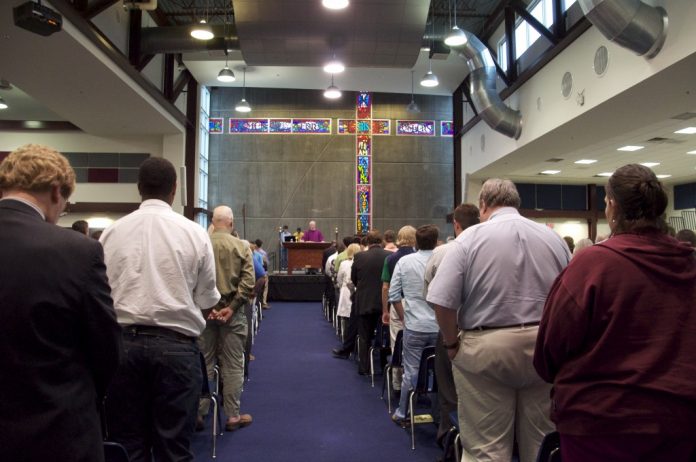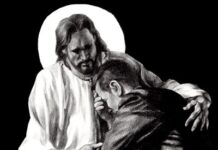In an era of smart phones and tablets, one might think that the Catholic Church would try to keep up with the latest innovations. However, at least in regards to the sacrament of Reconciliation, the Church encourages face to face interaction, removing the barrier of anonymity that we rely on so much in modern times. Rather than developing “an app for that,” the Church has continued to require personal discussion with a priest in order to attain forgiveness for one’s sins.
Although the sacrament of Reconciliation is fairly uniform around the world, the practice of incorporating it into a school curriculum can vary greatly from school to school. However, when asked about how Jesuit’s process of reconciliation compares to the processes at other schools, newcomer Father Hooks, S.J. said, “I’d say it’s pretty similar to a lot of other schools.”
Specifically, Jesuit’s process of Reconciliation involves students meeting in the Terry Center for the sacrament during their scheduled theology periods. After a brief, communal prayer and reflection session, students are invited to reflect individually by either watching a PowerPoint filled with religious quotes or quietly reading any of the provided pamphlets.
Even devout Catholics who have received the sacrament many times can still become anxious over the idea of confessing their sins to a priest. This is a common reaction as many people feel guilty or embarrassed about their sins. These feelings even can be exacerbated for non-Catholics and non-Christians who are unfamiliar with the process.
Father Hooks spoke to the common thread between religions, especially in how sin is viewed, saying, “A lot of different religions… have ideas about love, what we call sin, and conversion, and Reconciliation.” Understanding this common thread between religions can help lessen the stress over talking to a priest. He then mentioned how other schools encourage non-Catholics and non-Christians to come and seek counsel from the priest, inviting students of all religions at Jesuit to do the same.
Father Hooks also agreed that the act “isn’t something we often do in our society: sit and tell somebody about our sins.” However, he still encouraged people to partake in it, saying that it can be very “healing” and ensuring people that “there is absolute secrecy.”
As far as what lies ahead for the sacrament, Father Hooks mentioned that he thinks that “parishes and schools will [continue to offer] the sacrament in a communal style a couple times a year.” So don’t expect to be able to receive forgiveness via email or text any time soon.
Many students find the sacrament to be healing and refreshing. They also find that the priests are very comforting and inviting, especially to newcomers. Matthew Favre ’16 said, “Going into Reconciliation is always nerve racking, but Father Huete made it a good experience. Ethan Dumbrigue ’16 also said that “the ability to confess my sins at school during Advent and Lent is a wonderful experience that we are so blessed to have at Jesuit.”






